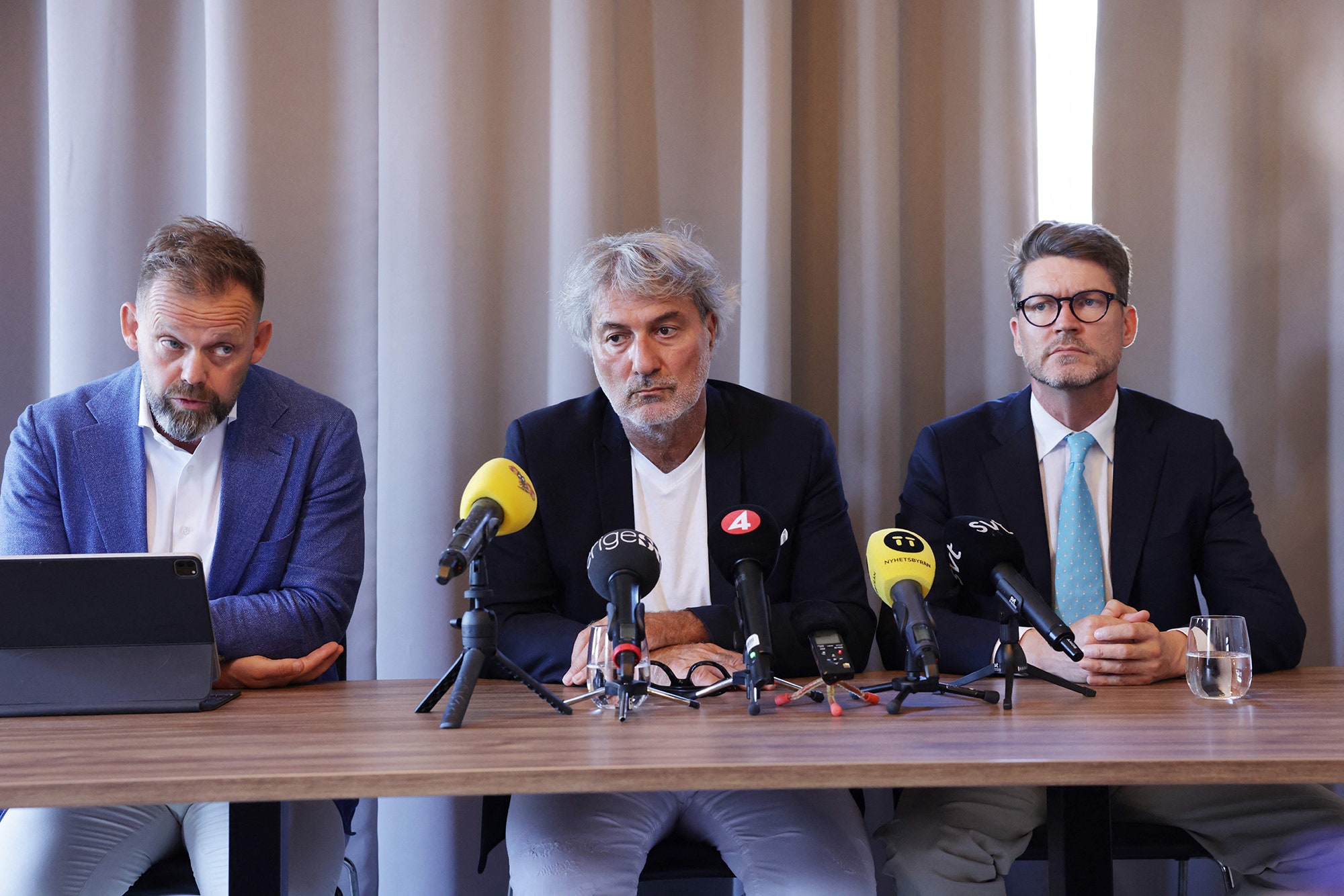"Vanity Fair: How Paolo Macchiarini, the Celebrity Surgeon Scammer, Deceived the World for Years"

By Julie Miller
Seven years ago, world-renowned surgeon Paolo Macchiarini was the subject of an ongoing Vanity Fair investigation. He had seduced award-winning NBC producer Benita Alexander while she was making a special about him, proposed, and promised her a wedding officiated by Pope Francis and attended by political A-listers. It was only after her designer wedding gown was made that Alexander learned Macchiarini was still married to his wife, and seemingly had no association with the famous names on their guest list.
Vanity Fair contributor Adam Ciralsky was in the midst of reporting the story for this magazine in the fall of 2015 when he turned to Dr. Ronald Schouten, a Harvard psychiatry professor. Ciralsky sought expert insight into the kind of fabulist who would invent and engage in such an audacious lie.
“I laid out the story to him, and he said, ‘Anybody who does this in their private life engages in the same conduct in their professional life,” recalls Ciralsky, in a phone call with Vanity Fair. “I think you ought to take a hard look at his CVs.”
That was the turning point in the story for Ciralsky, a former CIA lawyer who soon learned that Macchiarini was more dangerous as a surgeon than a suitor. He found that Macchiarini had grossly embellished his résumé, claiming medical degrees and experience he didn’t have, and was performing what he claimed were groundbreaking (but were actually untested) thoracic surgeries on patients.
As Ciralsky puts it, “He was operating all over the world, spinning yarns about being part of a VIP surgical ring that operated on heads of state, claiming to have been the doctor for at least one, if not two, popes, and wrote papers about a technique that was not only unproven, but had been totally untested on animals.” Referring to his untested thoracic surgery, Ciralsky says, “This is a man who engaged in human experimentation.”
After the Vanity Fair piece was published, Macchiarini was fired from Sweden’s Karolinska Institute, home of the Nobel Prize in Physiology or Medicine, and, incredulously, the surgeon’s employer at the time. Two higher-ups at the institute, who were involved in keeping Macchiarini employed, resigned. Within a few years, Sweden reopened an investigation into Macchiarini’s surgeries, which led to a conviction for gross assault against three of his patients. Macchiarini currently awaits a prison sentence of more than two years.
Nearly a decade later, the story of an apparent psychopath with a scalpel is inspiring multiple pop-culture adaptations. On Thursday, Peacock premieres two projects about Macchiarini: the second season of the scripted anthology series Dr. Death, starring Edgar Ramirez as the surgeon and Mandy Moore as Alexander; and the documentary Dr. Death: Cutthroat Conman. (Ciralsky is an executive producer on both.) Last month, Netflix gave the story its own go in Bad Surgeon: Love Under the Knife, a project in which Alexander participated. (Previously, Alexander executive produced the TV special He Lied About Everything.) Macchiarini’s crimes have even inspired a Swedish opera.
What shocked Ciralsky was the duration and geographic reach of Macchiarini’s deadly deceptions. But “he had created his own halo effect,” says the reporter. “He was the subject of glowing press coverage in Europe and the United States. The world’s most prestigious medical journals, like The Lancet, thought he was a water-walker.”
After Ciralsky began speaking to Macchiarini’s colleagues, the reporter found that some had grown suspicious during their time with the surgeon. The few who tried to do something about it, however, hit bureaucratic walls, allowing the surgeon to keep carving a professional path through Europe, Russia, and the US.
As a lawyer, Ciralsky understands why hospitals would not have exactly advertised Macchiarini’s lies after they learned of them: “There is absolutely no upside—other than making sure patients don’t die, which seems to be the calling of medicine…” He starts again. “There is no upside, legally, for flagging him as a psycho surgeon. What does that say about your institution? Every patient he’s ever operated on would probably find a class-action lawyer and come after the institution.”
Asked what he learned from reporting the story, Ciralsky says, “People talk about the ‘blue wall of silence,’ where a bad cop will be passed from one precinct to another, or the Catholic Church during the sex abuse scandal. There’s definitely something comparable in medicine.… He was in so many countries, and not a single one said a damn thing until my story came out.”
“The fault here cannot be laid exclusively at the feet of the Karolinska Institute,” he adds. “That is supposed to be the gold standard in medicine, so much so that it hands out the Nobel Prize in medicine or physiology.” So if this spectacular of a deception can happen there, he says, “I can imagine a world in which it happens in many, many other places that are lower profile.”




